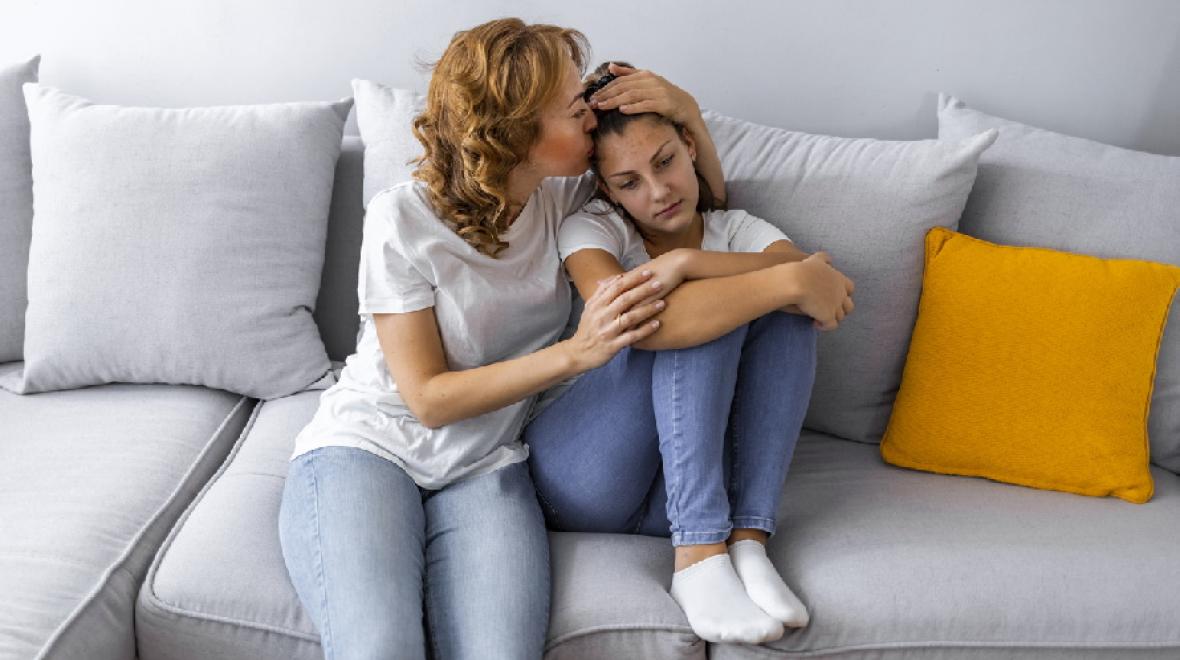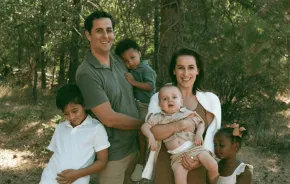
Most parents are willing to try anything to stop anxiety from ruining their child’s life. But sometimes, the strategies that we employ do more harm than good. So, how do you know what actually helps or hurts your anxious child? How do you avoid making their anxiety worse?
Here are five things to stop doing if you have an anxious child.
1. Do not empower your child’s fears.
If you fear dogs but are planning to go to an event where there will be lots of dogs, spending days researching about the event will only increase your anxiety. The same is true for kids. If your child fears dentists, spending hours talking about their dental visit will amplify their anxiety.
That doesn’t mean that you should not talk about anxiety-provoking situations they may be facing. It simply means that dwelling on situations that stoke your child’s fears will only make their anxiety worse.
Your reactions can also empower your child’s fears. For instance, if going to the dentist makes you anxious, you are likely to increase your child’s fears because of your own anxiety and the mixed signals that result.
Remember that more than the words you speak, your body language, and even the tone you use, can convey your true feelings.
2. Do not try to eliminate your child’s anxiety.
Anxiety is a common emotion that helps us function. It helps us avoid — or react to — dangerous situations, pushes us to prepare for challenging situations such as interviews, and can even help keep us motivated.
Anxiety is a normal emotion that everyone experiences. Helping your child to manage their anxiety is not about eliminating anxious feelings; it is about teaching them that everyone feels anxious at some point and helping them understand that they will be okay in spite of their anxiety.
Do not forget that making unrealistic promises (“I promise that nothing will happen!”) or invalidating your child’s feelings (“That’s not something to be scared about!”) increases their anxiety.
3. Do not prevent your child from facing their fears.
If your daughter is afraid of water, enrolling her in anything but water sports can appear to be a much easier option for everyone. But avoiding anxiety-provoking situations is not the answer if you want to help her cope with her anxiety. Research indicates that it can actually worsen that anxiety.
Gradually exposing your child to difficult situations and helping them develop appropriate coping skills will make it easier for them to deal with those situations in the future.
While it is important to push a child out of their comfort zone to help them address their anxiety, pushing too hard can make that anxiety worse. Start with small regular steps and remember that things will not change overnight.
4. Do not pass your anxiety on to your child.
Researchers who have attempted to understand anxiety in children all say that parenting styles can either reinforce or minimize children’s anxiety. But here’s the thing: The problem is more about how parents react to anxiety-provoking situations than about whether or not parents are anxious themselves.
The scientific evidence suggests that anxious parents tend to raise anxious children because they display anxious behavior and transmit anxious reactions. This makes sense if you think about it: If you are afraid of bees, you are likely to react in ways that will demonstrate to your child that they too should be anxious around bees. This is true even if you do your best to reassure them, because there’s a good chance that your actions will not match your words.
Remember that your child will learn to deal with their anxiety by watching how you react to anxiety-provoking situations — again, it’s not a question of hiding your anxiety; it is about showing your child that you, too, get anxious but that anxiety can be managed effectively.
5. Do not put too much pressure on your child
The reasons behind children’s anxiety do not always “make sense,” so such episodes of angst can be difficult for many parents to understand. These incidents can appear irrational, provoke feelings of frustration and lead you to push your child to “get over their anxiety.” But putting too much pressure on your child can make their anxiety worse. Or it can cause them to repress their emotions, and repressed emotions often lead to negative physical and psychological effects.
Do not ask your child to do something you know they cannot handle.
Now that we’ve looked at five things you should avoid, here are five things you can do to help your anxious child.
How to help anxious children cope with their anxiety:
- Help your child understand that overcoming anxiety requires practice. The more they face anxiety-provoking situations, the better the chances are that they will develop effective coping mechanisms to respond capably to their stressors.
- Help them put their fears into words. Encouraging your child to articulate their fears provides an opportunity to talk about anxiety-provoking situations. Doing so can equip them with strategies to better manage their anxiety by exploring possible ways they can react in the “worst-case scenario.” By putting their fears into words, they can learn to focus on solutions and options. That said, it is important to avoid putting words into your child’s mouth; instead, encourage them to name the reasons behind their anxieties.
- Help your child understand that it is normal to feel anxious, but that they can still succeed despite their anxiety.
- Show your child that you know they are going to be okay. It is important for an anxious child to think of managing anxiety-provoking situations as a skill that is learned; that while they may not have the skills to deal with such situations appropriately, they will succeed in doing so if they keep practicing.
- Model effective ways of coping with anxiety. Show your child that you also become anxious and then demonstrate positive ways of dealing with your anxious feelings.
Helping your child develop coping mechanisms to deal with anxiety-provoking situations is the most effective way to help them learn to manage their anxiety over the long term. This means teaching them to identify their emotions and how those emotions feel in the body, then allowing them to choose the coping skills that work best for them to deal with different stressors and situations.











